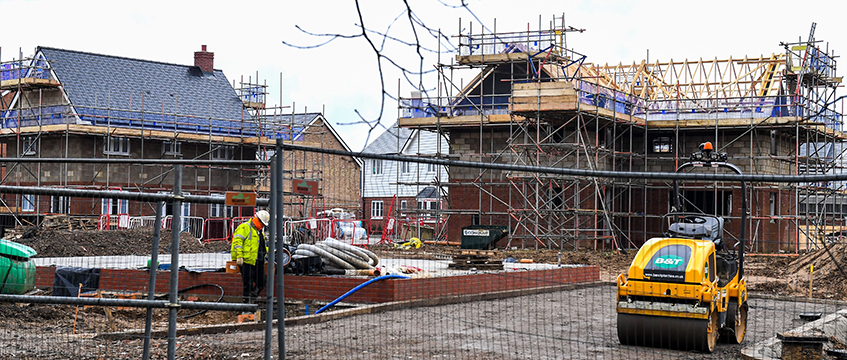The government has been urged to form a cross-departmental housing delivery unit that will help it to meet its 1.5m homes target.
The Radix Big Tent Housing Commission’s Beyond the Permacrisis – Delivering 1,000 Homes a Day report sets out 15 steps to deliver the 1,000 homes a day that will be needed over the course of the next parliament for the government to meet its target.
Alex Notay, chair of the commission and main author of the report, told EG that in order to reach 1,000 homes a day, the country needs an “bigger picture independent committee like the Climate Change Committee, that has the steer and capacity to drive all the relevant government departments”.
She said: “There are no silver bullet solutions to the housing crisis – it’s complex, it’s multilayered, it’s interlinked. We need lots of different tenures, we need different things to hit that target. And to reach 1,000 homes a day we need to do things about our skills, our capacity, about the construction, the supply, the labour market, viability, funding and planning and all of the things we talked about in the report.
“Flawed governance structures”
The multi-disciplinary commission was formed in March this year, 20 years after the publication of the Dame Kate Barker’s Review of Housing Supply report. Barker chaired the commission until her appointment to the New Towns Taskforce in August.
It includes property professionals, developers, investors, planners, academics and others, and is supported by Shoosmiths, all urging the government to treat housing as national infrastructure.
It states that “the failure to meet decades of housing targets or fully adopt the recommendations of the 2004 Barker Review lies predominantly with flawed governance structures”.
The report sets out a framework for housing delivery, including a clear strategy, a new housing delivery unit at the heart of government, cross-party collaboration and clarified roles for different tiers of government.
Notay added: “We need policy that isn’t political and is as we recommended, with a bigger picture independent committee like the Climate Change Committee, a housing delivery unit that has the steer and capacity to drive all the relevant government departments, because housing has implications across health, education, across everything. If we can persuade Treasury that they are better off spending less money on the outcome of bad housing and investing more in good housing then, yes, we could do 1,000 homes a day – but it requires that mindset shift.”
Notay and her team at the commission also recommended a cross-party accord to create policy consensus and improve the delivery of schemes across the UK, a new approach to the release of public land for housing and a new role for Homes England so it can act as a master developer.
It also petitioned for streamlining existing funding pots and processes, replacing wasteful and divisive short-term competitive funding model with longer-term, needs-based funding formulae. And it encouraged institutional investment in housing by creating a level playing field for tax, clarity of vision and consistency of regulation.
The commission asked for reform the current system of developer contributions through section 106 and the community infrastructure levy, with a particular goal to deliver more affordable housing and to agree a prompt rent settlement that provides income security for registered providers.
Route map
The report provides a route map to improve the planning process based around the reintroduction of strategic planning and a plan-led approach to sustainable growth, diversifying the market and expanding the role of SMEs and self-commissioned housing and rebuilding capacity and capability within the public sector.
Notay also said the commission has received a lot of time and engagement from the housing minister, the team and various government departments.
She said: “We do feel confident about the report being implemented, we are having a parliamentary launch at which the housing minister is speaking, and he was very public in acknowledging the interim recommendations being valuable. We feel very confident the government will read the report. When it comes to doing, we have tried very hard in the interim recommendations and the ones in the report to list short-term ‘things you can do now’ and long-term ‘these are going to some more heavy lifting’.
“I think we do have a good mix of things that are deliverable now. The government has already implemented some of that stuff – some things are already in motion, but I do feel like we have had very positive engagement and you can see how hard the administration and the civil servants are working to tackle this – it is a priority.”
Image © Anthony Harvey/Shutterstock
Send feedback to Akanksha Soni
Follow Estates Gazette











